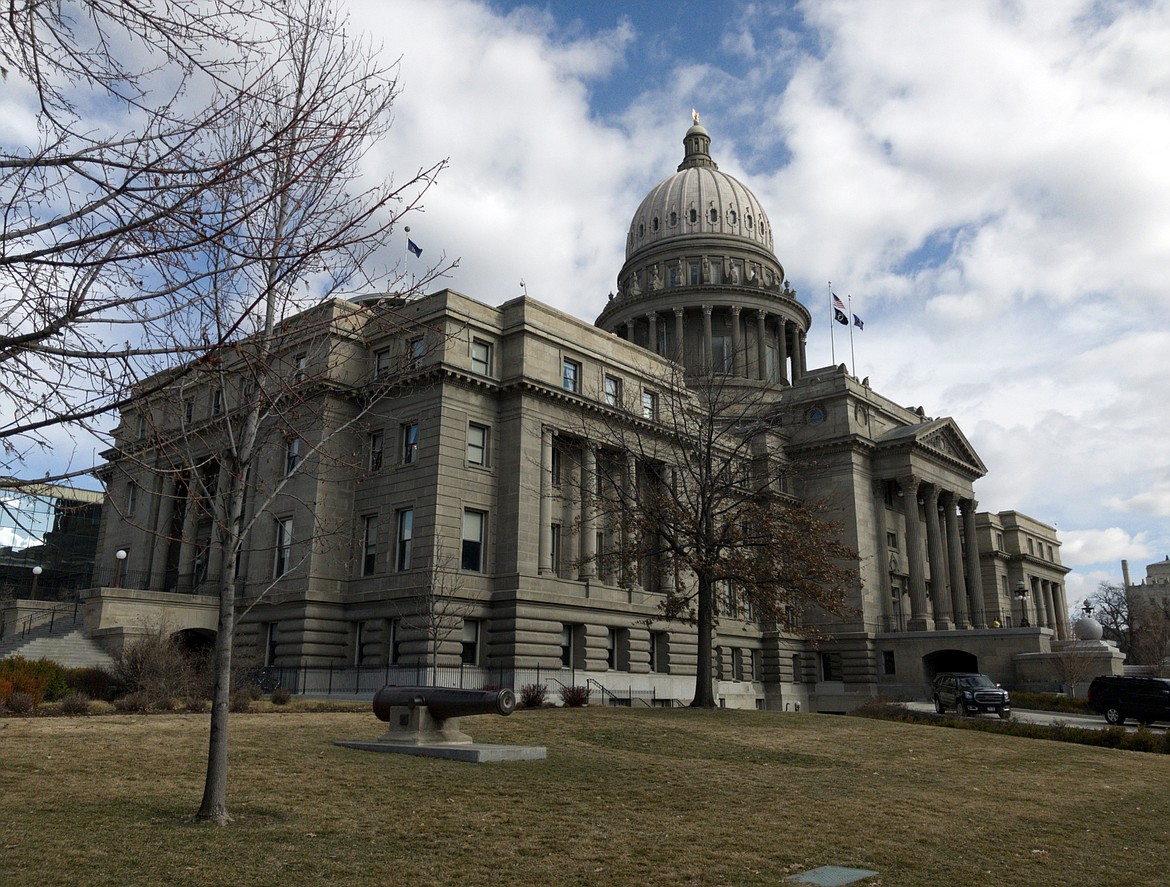Waiting game begins for potential vetoes from Idaho governor
BOISE (AP) — Idaho lawmakers have started their waiting game to see whether Republican Gov. Brad Little vetoes any of the more than 30 bills that remained unsigned when the House and Senate went into recess late Wednesday.
By the time lawmakers return next Wednesday, Little's deadline to decide on most or all those bills will have passed. They include measures allocating millions of dollars for education and health and welfare.
Little is expected to sign most of the bills, but four of the measures would limit a governor's authority during declared emergencies. They're watered-down versions of two bills that Little previously vetoed.
There's also an agriculture-industry-backed bill that could lead to the killing up to 90% of Idaho's 1,500 wolves and another to prevent public funds going to facilities that provide abortions or their affiliates.
Marissa Morrison, Little's spokeswoman, declined comment Thursday on whether Little planned to veto any of the bills.
Of the four bills limiting a governor's authority during declared emergencies, one originated in the Senate where leaders there said Little worked with them on drafting it. They have said they believe Little will sign it.
That bill deals with "extreme" emergencies involving 12 or more of Idaho's 44 counties and requires the Legislature to get involved if a declared emergency extends more than 90 days. The coronavirus pandemic would qualify as an extreme emergency.
The three other bills that originated in the House replace a previous vetoed House bill. They involve more localized emergencies such as fires or floods.
Lawmakers backing those bills dropped a requirement from the vetoed bill that emergency declarations immediately end after 60 days if not approved by the Legislature. Currently, a governor can extend emergency declarations every 30 days.
Essentially, the four bills limit an Idaho governor's ability to alter laws, to take away gun rights, prevent religious and other gatherings and to restrict people from going to work during emergencies.
Lawmakers are angry at actions Little took last year at the start of the coronavirus pandemic that included a temporary stay-at-home order as COVID-19 patients threatened to overwhelm hospitals. Some workers, as in other states, were declared "nonessential," a term that angered lawmakers. More than 2,000 Idaho residents have died because of COVID-19.
The Idaho Fish and Game Commission, whose members are appointed by the governor, opposes the wolf killing bill because it puts wildlife management decisions in the hands of politicians instead of the commission and its experts.
Wildlife groups have also criticized the bill, with one group asking U.S. Interior Secretary Deb Haaland to cut off about $20 million in federal money Idaho receives — arguing the wolf bill violates requirements for Idaho to receive the money that goes toward enhancing wildlife and recreation opportunities.
The abortion bill prevents some public funding from being used for abortions, though no state funds can be used for that purpose currently.
That measure also prevents state entities from contracting with facilities that provide abortions. And abortion-related activities would be prohibited in school-based health clinics, including counseling in favor of abortion or making abortion referrals.
Another bill awaiting the governor's signature is a gun measure that supporters have said is needed to head off a half-dozen executive actions from President Joe Biden to combat what he has called an "epidemic and an international embarrassment" of gun violence in the U.S.
When lawmakers meet again in Boise on Wednesday, it will be the Legislature's longest session ever at 122 days, eclipsing the previous record of 118 days set in 2003.
Wednesday will also mark the latest date a regular legislative session has ever been held in the state. Those records will grow if the lawmakers decide to continue the current legislative session beyond Wednesday.
They do have unfinished business. Some last-minute bills from last week failed to advance to the governor.
Those bills include a $6 million federal grant to improve early childhood education from birth through age 5. That's a reworked version of a previous bill rejected in the House after opponents claimed it would be used to promote social justice or a liberal agenda in the very conservative state.
A last-minute bill prohibiting marijuana advertising made it through the Senate on Wednesday, but the House never took it up during the whirlwind of bill passing late Wednesday. It was not clear if the bill died or lawmakers simply ran out of time. The House could rush it through when it convenes next Wednesday.
Another bill that would have made retroactive a new law signed by Little earlier this year making it much more difficult to get initiatives on ballots stalled in the House.
An attorney general's opinion said making the law retroactive to a medical marijuana initiative whose backers received approval in February to collect signatures is probably not constitutional.

